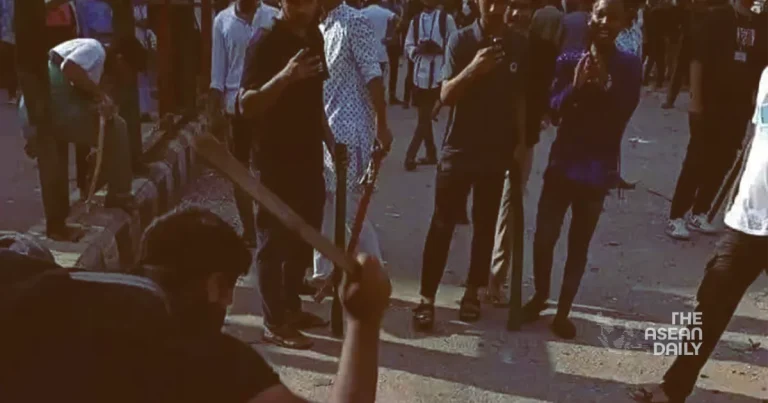19-7-2024 (DHAKA) A wave of violent protests swept across Bangladesh on Thursday, leaving 13 people dead and hundreds injured as tensions over a contentious government job quota policy reached a boiling point. The unrest, which has claimed at least 19 lives this week, marks the most severe outbreak of violence since Prime Minister Sheikh Hasina’s re-election earlier this year.
The streets of Dhaka transformed into battlegrounds as thousands of students, armed with sticks and rocks, clashed with police forces. Law enforcement responded with tear gas and rubber bullets in an attempt to disperse the crowds. The chaos led to the torching of vehicles, police posts, and other establishments across the city.
Among the casualties were a bus driver with a bullet wound to the chest, a rickshaw-puller, and three students, according to official sources. The death toll on Thursday alone surpassed that of any single day since the protests began.
At the heart of the unrest lies a policy that reserves 30% of government jobs for families of veterans who fought in the 1971 war of independence from Pakistan. Protesters argue that this system exacerbates the already dire unemployment situation, with nearly a fifth of Bangladesh’s 170 million population currently out of work or education.
The quota system, which had been scrapped by Hasina’s government in 2018, was reinstated last month by a High Court decision. The government’s appeal against this verdict is pending, with a Supreme Court hearing scheduled for 7 August.
In response to the escalating situation, authorities resorted to cutting some mobile internet services in an attempt to quell the unrest. However, this move seems to have done little to dampen the protesters’ resolve.
The epicentre of the protests has been Dhaka’s main university campus, but Thursday saw demonstrations intensify in other parts of the city. All public and private universities have been shut indefinitely since Wednesday, with security forces deployed to maintain order.
Law Minister Anisul Huq extended an olive branch to the demonstrators, expressing the government’s willingness to engage in dialogue. However, protest co-ordinator Nahid Islam rebuffed the offer, stating, “We cannot trample over dead bodies to hold discussions. Discussions could have taken place earlier.”
Prime Minister Hasina, daughter of Bangladesh’s independence leader Sheikh Mujibur Rahman, has thus far stood firm on the quota policy, insisting that the matter now rests with the courts.
The international community has taken notice of the escalating situation. UN Secretary-General Antonio Guterres called for restraint from all parties involved and urged authorities to investigate the violence and hold perpetrators accountable. He emphasised the importance of meaningful youth participation in addressing Bangladesh’s ongoing challenges, asserting that “Violence can never be the solution.”




